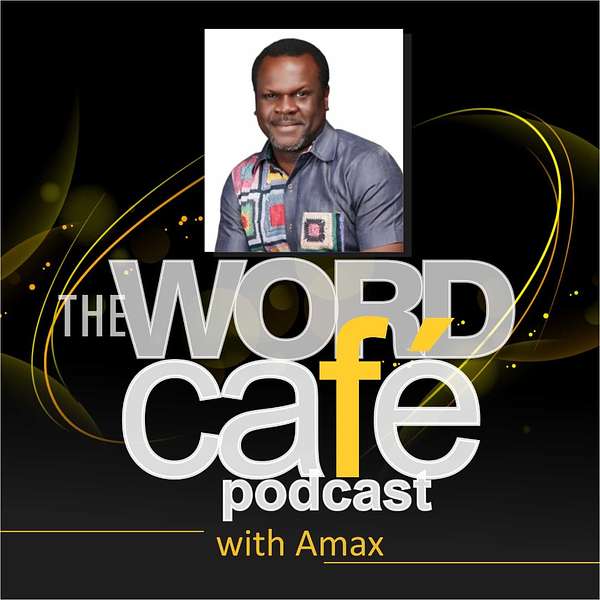
The Word Café Podcast with Amax
My unique message to the world is the power behind the words of our mouths. We have made light of it but cannot escape the fruits thereof. For me, words are the unit of creation, the building block on which our existence evolves. This podcast is for everyone who wants to better their living by using words and applying themselves wisely. I will be using the storytelling style fused with imaginative nuances to transport the listener to that place, where possibilities are not luxuries but everyday experiences; movie in voice.
This podcast will emphasize the power of routine, and what you repeatedly do, you most likely build capacity and expertise for what you repeatedly do. My podcast will help the listener learn how to practice success because the same amount of time you use in complaining is the same you can use to plant, build, prune, etc. I intend to draw the listener's attention to the power of their words.
The Word Café Podcast with Amax
S2 Ep. 122 The Creation of a Myth
What is a myth and how is it created?
The word myth derives from the Greek mythos, which has a range of meanings from “word,” through “saying” and “story,” to “fiction”; the unquestioned validity of mythos can be contrasted with logos, the word whose validity or truth can be argued and demonstrated.
https://www.britannica.com/topic/myth
myth (n.)
1830, from French mythe (1818) and directly from Modern Latin mythus, from Greek mythos "speech, thought, word, discourse, conversation; story, saga, tale, myth, anything delivered by word of mouth," a word of unknown origin. Beekes finds it "quite possibly Pre-Greek."
Myths are "stories about divine beings, generally arranged in a coherent system; they are revered as true and sacred; they are endorsed by rulers and priests; and closely linked to religion. Once this link is broken, and the actors in the story are not regarded as gods but as human heroes, giants or fairies, it is no longer a myth but a folktale. Where the central actor is divine but the story is trivial ... the result is religious legend, not myth." [J. Simpson & S. Roud, "Dictionary of English Folklore," Oxford, 2000, p.254]
General sense of "untrue story, rumor, imaginary or fictitious object or individual" is from 1840.
https://www.etymonline.com/word/myth
The making of a myth is a process through which a story, idea, or belief is created and widely accepted as true, even if it may not be entirely accurate or based on factual evidence. Myths are often created to explain natural phenomena, historical events, or societal norms and beliefs.
The process of making a myth involves several key steps:
1. Creation of the story: A myth begins with the creation of a story that captures the imagination of people. The story may be based on real events or people, but often involves supernatural or magical elements that make it more compelling.
2. Spread of the story: Once a myth is created, it needs to be spread widely to gain acceptance. This can happen through oral tradition, written texts, art, or other means of communication.
3. Reinforcement of the story: As the myth is spread, it becomes reinforced through repetition and acceptance by a wider audience. People begin to believe the story is true and it becomes part of the cultural identity.
4. Integration into society: The myth becomes integrated into the social fabric and is used to explain or justify beliefs, practices, or social norms.
5. Evolution of the myth: Over time, the myth may evolve or change to fit changing cultural norms or to explain new events.
Making a myth can be a powerful tool for shaping beliefs and behaviors, but it can also be used to manipulate people and perpetuate harmful or false beliefs. It is important to critically examine myths and seek out evidence-based explanations to understand the world around us.
You can support this show via the link below;
https://www.buzzsprout.com/1718587/supporters/new